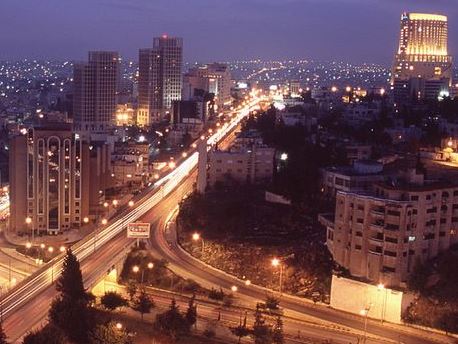World Bank Support to Promote Transparency, Accountability and Job Creation in Jordan

Amman, Jordan
A US$250 million loan, approved last week, will ease Jordan’s fiscal strains, which have been deepened by the influx of Syrian refugees and by regional turmoil that has disrupted its hydrocarbon supplies from Egypt. The World Bank’s support to Jordan over the last two years, amounting to US$700 million in loans and grants, has focused on a two-track approach, medium term budget support and emergency response to the Syrian crisis.
“Jordan is striving to offset the impact of exogenous shocks that have deepened its economic difficulties,” said Ferid Belhaj, World Bank Director of the Mashreq Department. “The World Bank’s support to Jordan over the last several months is a case in point of how engaging fast and in earnest to tackle emergency situations, such as the impact of the Syrian crisis on the country, can help maintain government focus on policy dialogue and prevent the derailing of its broad structural reform agenda.”
The Second Programmatic Development Policy Loan complements an earlier operation approved in January 2012 which supports key elements of the Government’s Executive Development Program. It aims to improve transparency and accountability, enhance debt management and the efficiency of government spending, and promote private sector-driven growth.
“Jordan is striving to offset the impact of exogenous shocks that have deepened its economic difficulties.”
– Ferid Belhaj, World Bank Director of the Mashreq Department
More recently, in July 2013, the World Bank committed US$150 million through a rapid, direct financial assistance to help Jordan maintain access to essential healthcare services and basic household needs for the population affected by the large and increasing impact of the Syrian crisis.
The World Bank has also spearheaded efforts to mobilize donor grant financing to support the resilience of stretched public service delivery to Jordanian communities hosting Syrian refugees. In October 2013, the Bank secured a US$50 million grant targeting municipalities and communities under stress. The grant, co-financed by Britain, Canada, Switzerland and the World Bank through its State and Peace Building Fund, strengthens municipal capacity to support local economic development.
External shocks, the global recession and the regional turmoil that followed the Arab Spring, including the impact of the disruption in low-cost gas supplies from Egypt, have heightened long-term structural vulnerabilities in Jordan. “As of mid-2012, it became apparent that the external shocks and regional turmoil have resulted in fiscal and current account imbalances which have been partially financed by external aid,” said Eric Le Borgne, World Bank Lead Economist for Jordan. “The programmatic operation approved today is contributing to the reform agenda Jordan needs, which places a high priority on growth and jobs.”
You may have an interest in also reading…
Citigroup CEO Jane Fraser
Jane Fraser, the CEO of Citigroup, is no stranger to glass ceiling and glass cliffs. Fraser, the first woman tapped
Nicholas Brady: Soccer Finance and the Pragmatist Who Fixed a Debt Crisis
Back in the days when a top-scoring soccer player could be enticed for a few million, Brazilian attacker Romario set
How Do You Define the Metaverse?
Bashar Kilani, managing director at Dubai-based Accenture, gives CFI.co readers the low-down on the hi-tech trends that enable organisations to











































































